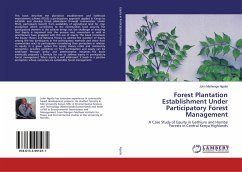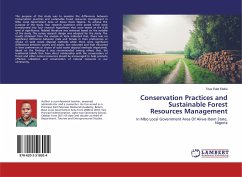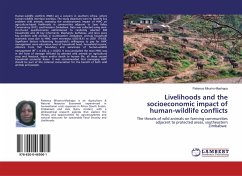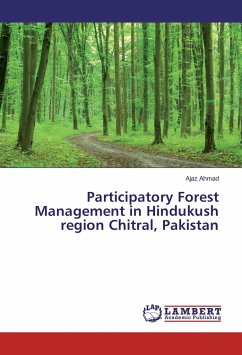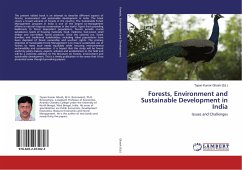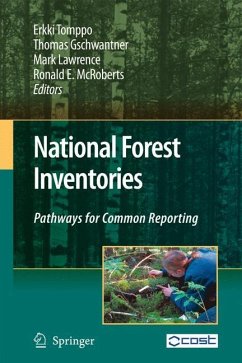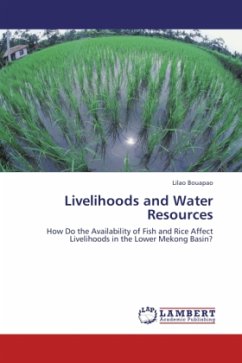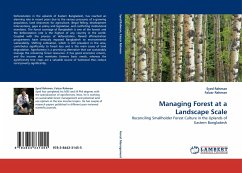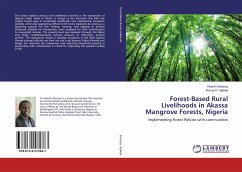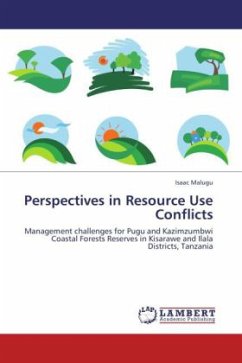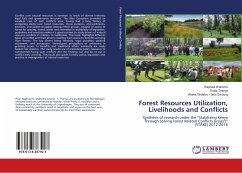
Forest Resources Utilization, Livelihoods and Conflicts
Synthesis of research under the "Stabilizing Kenya Through Solving Forest Related Conflicts project" (STAKE) 2012-2016
Versandkostenfrei!
Versandfertig in 6-10 Tagen
24,99 €
inkl. MwSt.

PAYBACK Punkte
12 °P sammeln!
Conflict over natural resources is common as result of diverse interests, legal fails and governance structure. The Mau Ecosystem provided an excellent case of such conflicts area, having had a long history of competing claims over forest resources, forest excisions, encroachments, evictions, and violent struggles among ethnic groups. Analysis of access to forest for grazing, wood, water and recreation in multiplicity of legislation, guidelines and practices makes it a good context to study drivers of natural resource conflicts in relation to livelihoods. This book highlights different types o...
Conflict over natural resources is common as result of diverse interests, legal fails and governance structure. The Mau Ecosystem provided an excellent case of such conflicts area, having had a long history of competing claims over forest resources, forest excisions, encroachments, evictions, and violent struggles among ethnic groups. Analysis of access to forest for grazing, wood, water and recreation in multiplicity of legislation, guidelines and practices makes it a good context to study drivers of natural resource conflicts in relation to livelihoods. This book highlights different types of conflict and their drivers resulting from access to benefits accruing from forests. The key drivers being ethnicity, legal pluralism, political incitement, and perception. Stereotyped perceptions of unfairness in granting access to benefits and traditional ethnic animosity are easily fueled into violence. The study results are of immediate policy relevance to communities facing such conflicts and the findings can also be of use in conflict early warning. This could also guide forestry policy, legislation and practice in management of natural resources.



